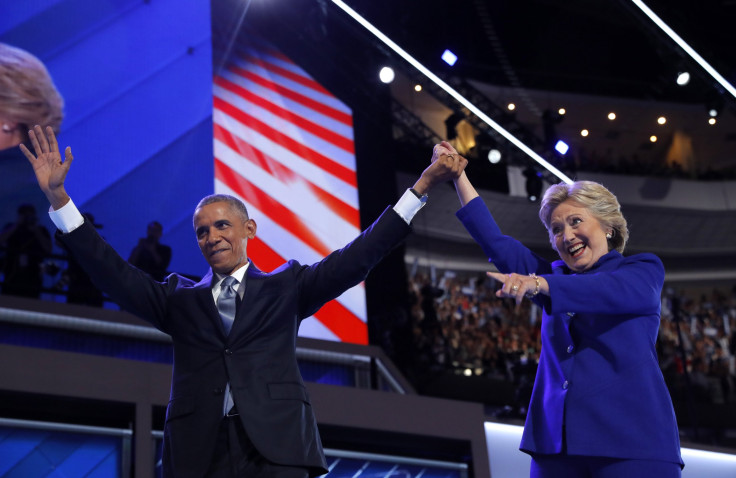Native Americans At DNC 2016: Delegates Say Hillary Clinton's Substance Must Match Diversity Seen In Philadelphia

PHILADELPHIA -- Native American tribal leader Edward D. Manuel, 69, stood in the hallways of the Democratic National Convention this week and marveled at the diversity. In conventions past, the descendants of native people were scarcely seen. But this year, seeing a delegate wearing a purple and black patterned tribal dress shirt over an Oxford, as Manuel did Wednesday, was no surprise.
“The last time I was in the DNC, in 2000, there were so few different people involved,” Manuel, chairman of the Tohono O’Odham tribe in southern Arizona and a Hillary Clinton delegate at the convention, said amid the rumble of the crowd in the Wells Fargo Center. “Now I see that it has grown.”
Native Americans have seen much more representation this year at the DNC: they were chosen to call out state votes in the nomination process and participated in talks with the White House and Democratic Party Monday on the opening day of the convention. The value of that increased visibility -- and the efforts made in the past eight years under President Barack Obama to establish better coordination between federal agencies and tribes -- is not lost on Native American delegates at the DNC. But they also cautioned that tribal nations face real problems, and optics at the convention can’t be a substitute for policy.
“I think it’s important to go beyond lip service, to start implementing policy. To start being active,” Sharon Peregoy, a Native American delegate and state representative for a district in Montana that houses two tribes, said.
Peregoy said many Native American delegates supported Vermont Sen. Bernie Sanders, who repeatedly visited tribes on the campaign trail to discuss issues they cared about, including land use and environnmental issues. Clinton didn’t make the same overtures during the primaries, so she didn't drum up the same support, Peregoy and others said.
“What I have not really heard yet is if Hillary is going to move forward on” a favorable platform for Native Americans, Peregoy said. “She didn’t really reach out to us during the primary.”
Native American tribes are classified in the United States as sovereign states entitled to self governance under treaties with the federal government. But, they often face red tape from the federal government when trying to develop industries using their natural resources (for instance, solar or wind power) and frequently rely on federal grants to make up the slack. They also face challenges of infrastructure (without reliable roads connecting large geographic areas, established industries don’t bother moving in), healthcare (Native Americans have the highest rates of diabetes, among other medical woes) and education (the population has some of the worst levels of academic achievement). Native Americans make up about 2 percent of the U.S. population.
Delegates said they'd like to hear Clinton take a page from Obama’s book when it comes to Native American rights. Under his administration, the federal government moved to pass the HEARTH Act (which promoted tribal sovereignty), permanently reauthorized the Indian Health Care Improvement Act, expanded protections for women on tribal lands and worked to resolve litigation between the federal government and tribal governments, some of which are over one hundred years old.
Clinton’s official website promises to continue that legacy and expand protections for Native American youth. But some delegates at the convention said they wanted her campaign to work harder to establish ties with tribes.
Perhaps the most important and pressing issues -- a high bar -- is water. From the Dakotas to Arizona, access to water and the sustained quality of that water is of utmost importance. In Arizona, tribes aren’t being invited to the negotiations for water rights and allocation among states as the region faces severe droughts. In the Dakotas, Native Americans say ongoing efforts to build oil pipelines -- like Keystone XL, which Democrats oppose, but also less publicized ones like the Dakota Access Pipeline -- esbtalish infrastructure that will break and gush oil, contaminating water access for an entire region.
“We use water in our ceremonies,” Alli Moren, a 24-year-old Native American delegate from South Dakota, noting that it goes beyond the simple fact that humans need the stuff to survive. “Water is our way of life.”
© Copyright IBTimes 2024. All rights reserved.






















